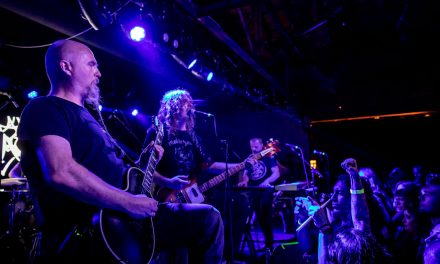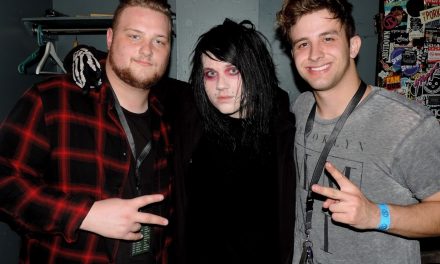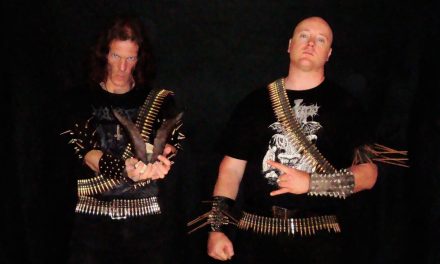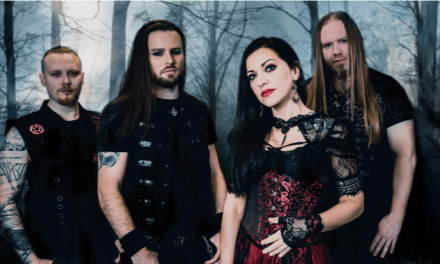
Gino Vannelli: A Journey Through a Brilliant Career in Music
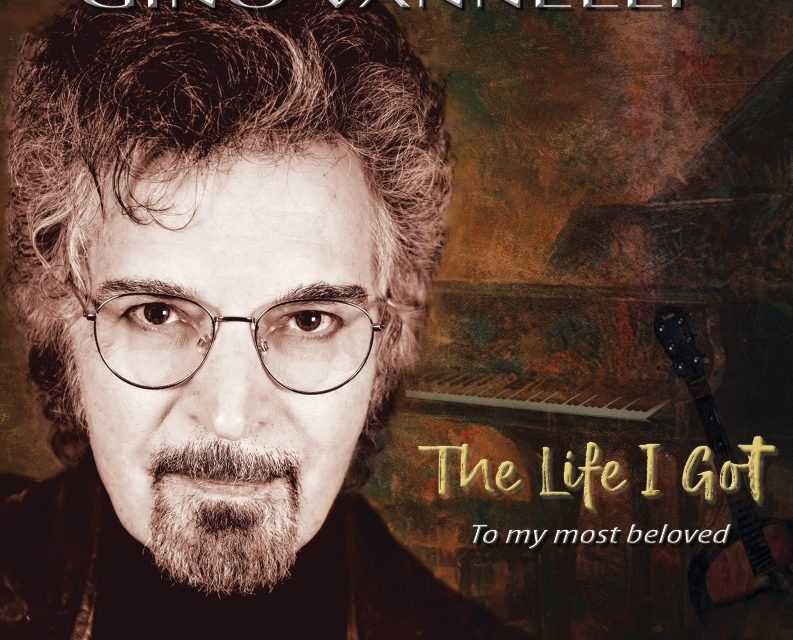
 Gino Vannelli: A Journey Through a Brilliant Career in Music
Gino Vannelli: A Journey Through a Brilliant Career in Music
Gino Vannelli has remained one of the most distinctive voices in contemporary music having sold over 20 million records worldwide. From rock, to jazz, to soul, even classical, he’s left no musical stone unturned. The acclaimed singer, songwriter, producer, and performer has just released his new album The Life I Got (To My Most Beloved) via COA Productions, with distribution by BFD / The Orchard. A stunning and poignant collection of songs written for his late wife Tricia, there is so much depth and inspiration to be found within the auditory tapestries found within The Life I Got (To My Most Beloved). Highwire Daze was honored to interview Gino Vannelli to discuss the amazing new album as well as other highlights from an absolutely brilliant career in music. Read on…
Is there any overall story or concept behind the album title, The Life I Got (To My Most Beloved)?
I wrote the album, my wife just passed a few months ago, and she’s been very ill for the last four or five years. I just decided to dedicate the record to her.
The brand new single, Stormy River. I want to talk about that song and the inspiration behind it.
Well, I started writing it a few years back when my mother passed from COVID in Canada, and they wouldn’t let me in. So, I had to watch her getting buried like on a camera and I’m still pissed about it. But immediately after I started writing Stormy River with her passing and I could never finish it. And then right after that, Tricia started getting sick. And she ended up dying from a kind of cancer called NET, which is a really brutal cancer. I never finished it till months before Tricia’s death. I had a track, and I knew the arrangement and all that. And I had some lines that I didn’t want to put. When I found the lines, I didn’t want to sing it to her because it was just weeks before her passing and they were the lines: The open arms of my sweet, departed love that waits for me. So, I did not want to sing to her that, but I knew it was coming.
Let’s talk about the previous single, Keep On Walking, and the inspiration behind it.
Keep On Walking was written interestingly enough weeks before I met Tricia. I met Tricia in 1974 in Portland, Oregon. It was December of 1974. We were supposed to do a show to open up for The Whispers and we had gotten snowed in. So, they cancelled the show, and I was walking down Broadway, which is the main street in downtown Portland. And I saw this lovely, lovely woman. Well, she was 19 years old at the time and placing a jewelry in the storefront window and I was just very, very drawn to her. We started speaking and she came to Los Angeles a few months later while I was recording the Storm at Sunup record in 1975. And I said, “This song was really written in anticipation of you, Keep On Walking.” And of course, she was flattered.
Then two years ago, I heard it on Spotify while I was doing some work in my office. And I said, “That’s a pretty good song.” And as it was playing, I went to the piano and started playing along with it. I said, “What about if we would do it this way?” I said, “Do you know what? I think I’m going to redo that song. It really merits a redo.” And that’s how that single happened.
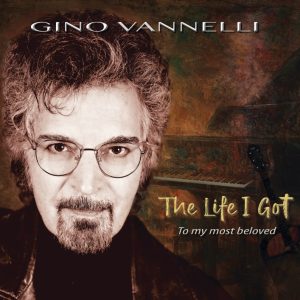
Well, again, this album is totally dedicated to Tricia. And after her first surgery, it was really brutal because they took out so much and it took her months to recover. But when she did recover, it was just so beautiful to have her back in my life. And one day, it was a late spring day in May, and we would take walks up… there’s a really beautiful walking area near our house and everything was in bloom and the grasses were a little bit high. We were walking in the high grasses, and the sun was just at a beautiful slant. It was around 4 o’clock. It just was like that perfect time of day, the perfect month, the perfect temperature of just warm on the verge of being cool and cool on the verge of being warm. And we were walking hand in hand and I just said to her, “I dreamed of days like this. I’m so glad you’re back.” And that’s what the song talks about, that it’s good to have you back after your storm. When you listen to the track, you’ll see it. I wrote it right after our walk. I went on the guitar and just started plucking out these chords and start singing. And it just came together that quickly.
And then, Come to Jesus’ Moment. Tell me about that one.
Well, it’s related to Tricia in the sense that I spent weeks in Peru in South America and then at least two weeks in Peru doing promo and TV and stuff and whatnot for my career in the mid to late 80s. And it seemed like it was a calling, a call to adventure to go up into the mountains of Peru, Machu Picchu, and other mountains that surround it. And so, I spent like near 10 days up in the mountains. And I had a, what would you call it? A transcendental or a transpersonal moment. It was very life-altering. I rushed home and Tricia helped me through it because it was so mind-boggling. It really was a quantum experience, and it had nothing to do with drugs, it was just something that happened that really changed my outlook. It took me a long time to grow into it because first comes the awakening and then comes the long and arduous path that you have to follow to live up to the awakening, so that you really integrate your awakening. So, Tricia was very much a part of that, and she was really my pillar through all that. And so, that’s the moment, that’s the Come to Jesus Moment that I had up in the mountains of Peru.
Co-producer Peter Fil, tell me about working with Peter and what was his background?
Peter is an artist from Athens, Greece, and we worked the whole album. We worked via Zoom and via Skype. I would send him tracks and he’d comment. He did most of the back vocals along with two girls that are very dear friends of mine in Montreal, Marie Claire Linteau and Annie Roy. And they did the backgrounds along with LaRhonda Steele here in Portland. So those are the background singers. But Peter did the main bulk of the backgrounds, a very talented guy and a good producer. And so, I decided to work with him.
A friend of mine in Monaco introduced us and Peter and I hit it off. It was really good to bounce off things off of him because he produces himself, but he looks at things as an artist. And so, we really had interesting conversations. And it helped me to keep that objective look at what I was doing. Because a lot of the album I played myself. And so, you can really get blinded by being so closed. It’s almost like putting your nose to a tapestry and you can’t see the design. And so, Peter helped me to back up and keep looking at the whole design.
A lot of these songs are deeply, deeply personal. Would you like to tour in support of this new album and play these songs?
Well, I think I’ll give the audience a chance to buy the record and listen to the record before I just pound them over the head. We’ll do at least a couple of songs from the record. We will do Keep On Walking and we will do Stormy River. There’s a new single to be released on Thursday along with the album called Nowhere to Go But Up. We probably will add that one by June. But we’re doing three or four dates this spring. Atlanta, Austin and another date in Texas. And then we play a bunch of dates starting June in Cincinnati, a few places in Pennsylvania. Boston, we’re playing, and then we’re going to play Los Angeles and Vegas in the fall. Then we’re going to South America and there’ll be a fair amount of dates this year. I don’t like to over-tour. It’s not necessary anymore for me, and I like to keep it fresh. I like to keep it as a honeymoon. When people are on the road with each other for too long, it’s just, we all get to annoy each other.
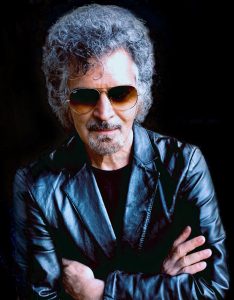
It was very flattering to be asked, but twice as flattering when I really studied his background, what he did during World War II, how instrumental he was in liberating Poland from communist Russia, and he really endangered himself. To me, he was the right kind of Pope. I mean, he was involved. He was with people’s daily lives, but he wasn’t extraordinarily judgmental if people weren’t Roman Catholics. He sought to build bridges among people of all different kinds of faith, and even people of not any kind of institutionalized faith at all. And so, I think he was kind of like a pope for all seasons.
I recently went to the NAMM Show and I saw Stevie Wonder wandering around with all of his bodyguards and everything and it was pretty cool. You toured with Stevie Wonder. What was that experience like, and do you still keep in touch with him?
I did for a while, but we fell out of touch. But it was really very gracious of him to ask me to substitute for Chaka Khan and this is like 1974. It’s a long time ago. This is 50 years ago. It really got my career going. And he was gracious enough to introduce me to his audience. He personally came out and introduced me and it was just all around a great experience. And because he asked me to do that, I also got to play on Soul Train. Don Cornelius gave me a personal call asking me to do a couple of songs on Soul Train. So, it was really instrumental in getting my career going.
I want to look back to the anniversaries of a few of your past albums and see what you think of them now in retrospect. I went to Amoeba Records yesterday and I found this album, Yonder Tree from 1995 and I bought it. When you look back on that album and the fact that it’s been 30 years. What do you think of it now in retrospect?
It’s a very good album. I mean, the tunes are very well written. I love Walter Whitman Where Are You, Unbearably Blue, A Little Bit Of Judas, You Owe It To Yourself. I mean, really solid songs, very, very good songs. Come To The Well is very nice. Moon Over Madness. Really, I’m proud of it because more than an album, it was my decision to, and again, that happened right after Peru. My decision to say I need to just follow my heart and follow my instincts, my impulse to do the kind of music I want to do. And I think following my deep impulses really paid off for me because I was happier doing music than just like chasing pop hits and things like that. It was time to leave that. And I did.
Yonder Tree is the first example of my leave-taking the pop world and wanted to explore a deeper world, a jazz-influenced world. It’s not a jazz record, but it’s very deeply jazz-influenced and very lyrical record. So, it really combined some things that a lot of jazz doesn’t really often do. And Chuck Findley, Randy Porter, Graham Lear, and Phil Baker, really great, great players.
Let’s go back 40 years to Black Cars, 1984. So, we’re cheating 41 years. What do you think of that now in retrospect? I just listened to the Black Car’s extended version by the way.
It’s very 80s and I made a conscious effort to now we’re kind of reverse engineering my career. At that point, I just wanted to make a very, very, very contemporary record. And I didn’t want to follow anything that we had done in the past, because we made serious records from Powerful People to Storm at Sunup, The Gist of the Gemini, A Pauper in Paradise, Brother to Brother, and Nightwalker. And then I asked my brother Joe, I said, “Look, we’re producing it together.” I said, “Let’s do something that we would not normally do.” And so, we did it kind of ourselves. We did it in Joe’s house. We did it in the bedroom and we had a studio out of the bedroom. We bought our own equipment. It’s lyrically a little bit different. Again, very 80s in the sense that it’s really full of digital synthesizers and things like that. But there are some very good tunes on it.

Right before that, yes. I was just about to start recording and then Tricia came to live with me while we were just still rehearsing. I really liked the album. It’s a breakthrough record. I mean, there are faults with it, obviously. I was 23 when I recorded it. I mean, I was young, but still precocious enough to accomplish a few things musically and some things lyrically that I wanted to. Where Am I Going, Storm At Sunup itself, Love Is A Night, and Love Me Now, they’re good songs and I do some of them live still.
Your single, I Just Wanna Stop, one of your biggest hits. When you recorded it, did you even dream that the song would become so iconic?
Well, you never really know. You do know that the song’s got potential. Ross played me that song and later we went on to work at it in the studio. I knew that it was good, and I knew that it could do something, but it’s an interesting thing. I sort of was a silent witness as it just raced up the charts.
Do you still enjoy playing it after all this time?
Yes. Because the whole show is not note for note like the record. I mean, it’s still very recognizable in the songs, people know the songs, but after 50 years, you got to bring something to the table for people to come see the show. And I’m so really grateful that people accept the little changes that we make and they’re there for a different reason. They just don’t want to come to remember who they were 50 years ago or 30 years ago or in some cases 10 years ago. Most people come to see what the band can do, what I still can do, and what we can offer them musically.
What do you think has kept you so passionate about music and creating for 50 years and counting?
The fact that I look at it as almost scientifically as an emanation from God, that I think that music, the vibration of music, and especially when it’s properly organized with the proper intent. Forget the healing part, we all want to be healed by music. I mean, sublimely entertaining, which can be healing. Sublimely entertaining can also entail making you feel something that you would otherwise not feel, make you think about something you may not otherwise think about. So, I think my sacred outlook on it, that it is really a universal vibration that we humans kind of collect, gather, and shape, and put together like we put it on a potter’s wheel, and we seem to be like potters shaping it with our hands, our voices, our minds, and creating something beautiful out of it. And I think that perspective always made me feel like, “Well, let’s see what we have now. Let’s see how deep the well is. Let’s see if I can pluck some other thing from the emptiness of the universe.”
Do you have any messages for your fans who are reading this now?
I always enjoy seeing them, of course. If we can speak after the concerts, that’s also enjoyable for me too. These days I’m a little bit more careful about that because I just hate getting sick and having to perform or cancel concerts or sing a concert with a cold. So, I’m very careful about those kinds of things. But I do love to meet with them and hear what they have to say, hear about their lives. That’s food for my brain. That’s food for thought for me. But I mean, all I can say is that things happen in life. Some things are not so pleasant. But if you have a system inside of you, a system of faith, a system of understanding yourself, and a knowingness that whatever it is, it will pass and that you will go on. That’s something big. And I would suggest that if you don’t have it, look for it.
(Interview by Ken M0rt0n)
Gino Vannelli Official Home Page










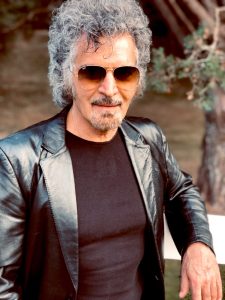 Gino Vannelli: A Journey Through a Brilliant Career in Music
Gino Vannelli: A Journey Through a Brilliant Career in Music